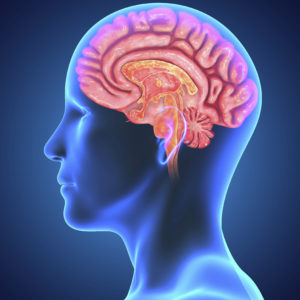
Brain
There is a huge relationship between Biotoxin Illness (CIRS) and multiple brain disorders. The neuro-cognitive symptoms of CIRS are 35% of the total symptoms. These symptoms include cognitive decline (brain fog), mood disorders, headaches and sleep disturbances. Ultimately, the end result of years of CIRS and exposure to water damaged buildings, and the toxins within, is brain damage and dementia.
The cognitive issues I see most often relate to impaired short term memory, decreased word finding, and lack of focus. This can be misdiagnosed as ADHD and just getting older. The result can be a medical provider prescribing ADHD and dementia meds, which accelerate cognitive decline. Examples of mood disorders I frequently see are depression, anxiety, bipolar disorder, anger, and a flat apathetic countenance. Again, often patients are prescribed one or more psych medications to cover up the symptoms when the real issue is toxic exposure and brain inflammation.
I describe to patients the condition as brain on fire. Because of the chronically elevated levels of inflammatory Cytokines due to CIRS, the body suffers chronic inflammation. The brain is the most sensitive to the toxins and Cytokines involved with CIRS. Treating the underlying cause is essential to stop the damage and reverse the changes before dementia results. Fortunately, the Shoemaker protocol has been shown to reverse brain atrophy.
There is testing available to define the degree of brain damage/atrophy so that appropriate steps can be taken to treat and reverse these changes. A special brain MRI called NeuroQuant is used and is usually covered by health insurance. It shows the degree of deterioration that has occurred over time. A special scoring system for the NeuroQuant is available at Surviving Mold which helps quantify the problems. These changes can then be followed over time to monitor the treatment regimen.
Nothing will reverse brain atrophy and damage from CIRS until you are out of exposure. It is the most important step by far. Then the treatment regimen can work fully and your brain can recover. Patients often tell me it was like a light finally went off and the fog cleared.
There is a lot of work to be done to treat CIRS effectively. However, we have the team to help you recover. There is hope!
